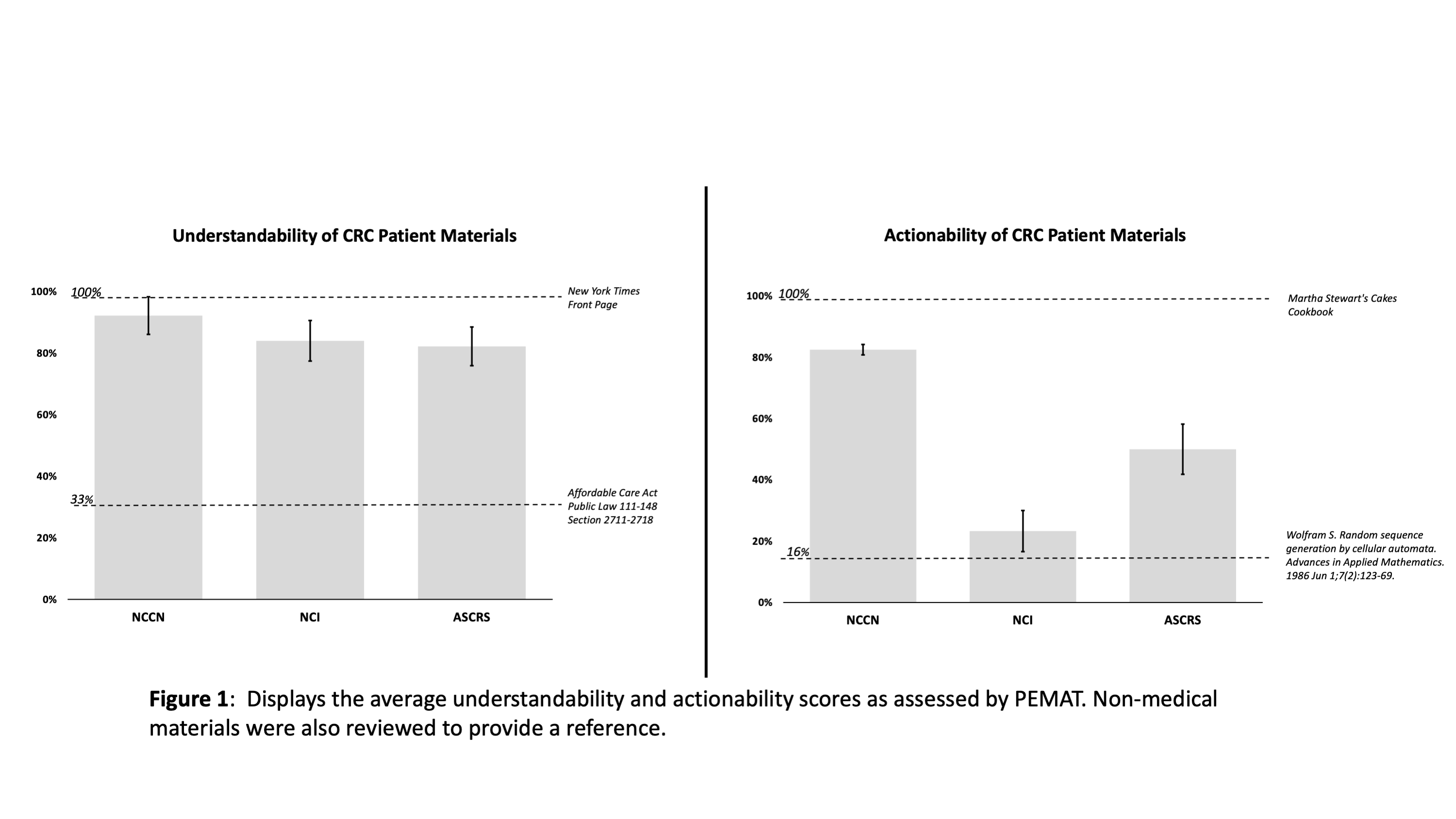Have We Missed the Mark on Patient Education Materials for Colorectal Cancer?
*Ravinder Kang1, *Elizabeth A, Carpenter-Song2, *Catherine H. Saunders3, *Spencer W. Trooboff1, *Jesse A. Columbo1, *Kayla O. Moore3, *Philip P. Goodney1, Sandra L. Wong1, *Srinivas J. Ivatury1
1Dartmouth Hitchcock Medical Center, Lebanon, NH;2Dartmouth College, Department of Anthropology, Hanover, NH;3The Dartmouth Institute for Health Policy and Clinical Practice, Hanover, NH
Objective: To critically evaluate colorectal cancer(CRC) patient education materials.
Design: Mixed-methods study.
Setting: Semi-structured interviews were conducted at medical centers across New England and at a regional colorectal society meeting. Focus groups were held at an academic medical center.
Patients/Participants: English-speaking, adult CRC patients in survivorship and their caregivers, and board-certified colorectal surgeons were purposively sampled.
Interventions: We assessed patient education materials for CRC from the National Cancer Institute(NCI), the National Comprehensive Cancer Network(NCCN), and the American Society of Colon and Rectal Surgeons(ASCRS) for reading-grade-level using the Flesch-Kincaid formula and for understandability and actionability using the Patient Education Material Assessment Tool (PEMAT). We qualitatively assessed material via semi-structured interviews with CRC surgeons (n=10) and focus groups with CRC patients and caregivers (n=5).
Main Outcome Measure(s): Reading-grade-level(target:6thgrade), understandability, and actionability scores and the qualitative assessment of materials.
Results: The readability of these materials varied from 7thto 11thgrade-reading-level. The actionability of materials also varied; the NCCN materials scored highest on PEMAT, (82.5±1.7%) followed by ASCRS (50.0±8.2%) and NCI materials (23.3±6.7%) (Figure 1). Patients noted that these materials had insufficient information regarding postoperative home care and resources for emotional support. While, surgeons felt details regarding standard postoperative care and general prognostic information were lacking. Both surgeons and patients identified a critical gap in all materials’ discussion of bowel function changes.
Conclusions: Current well-accepted patient education materials for CRC fail to meet our patients' needs. They are written at a high reading-grade level, vary in their usability, and neglect details regarding functional recovery. 
Back to 2019 Abstracts




